‘The Great’ Star Nicholas Hoult Talks Indian Motorcycles, ‘Mad Max: Fury Road’ And More
After falling in love with bikes on the set of “Mad Max: Fury Road,” Hoult commissioned an Indian Super Chief with Brat Style bars, custom cone-end pipes, and vintage hardware.
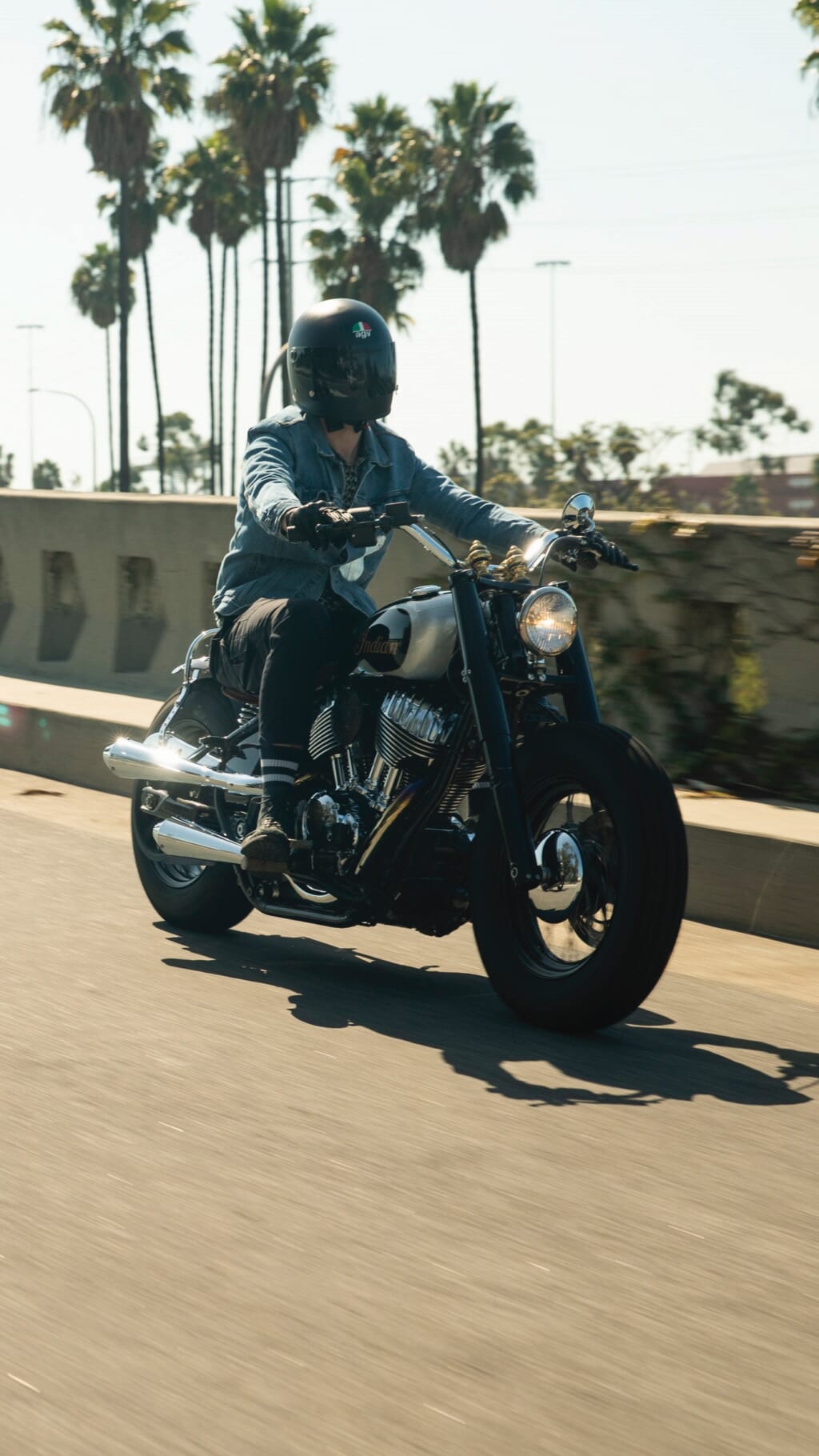
It’s no exaggeration to call Nicholas Hoult, though barely over 30, among the most talented actors of his generation.
The London-born thespian’s range is extraordinary, playing iconic men of history like inventor Nikolai Tesla, reclusive authors J.R.R. Tolkien and J.D. Salinger, and sociopathic Russian czars like Peter the Great; then turning into a mutant (The Beast in X-Men), a lovelorn zombie (Warm Bodies), and even spraycan-sniffing “War Boy” Nux in Mad Max: Fury Road. Next up we’ll see him move into dark comedy in The Menu with Anya Taylor-Joy and Ralph Fiennes.
Beyond film, Nicholas shares with us one other deep passion: motorcycles. His daily rider is an Indian Scout Bobber when in Los Angeles, and the brand—the oldest American motorcycle builder, dating back to 1901—recently offered to connect him with legendary Japanese customizer Go Takamine to craft his own bespoke Super Chief Limited. We were there for the unveiling at Takamine’s shop in Long Beach, California, when Nick saw his new bike for the first time—a moving experience (no pun intended).
To create it, Takamine converted the Super Chief ’s rear suspension from a soft-tail to a rigid arm, added his signature “Brat Style” bars, side-mounted cat-face rear brake light, and a new set of custom cone-end exhaust pipes. He fused vintage hardware like a headlamp with an old Indian Motorcycle brass coin; and added more brass in the form of a gnarled shifter and foot pegs, with actual Indian nickels at the ends of the latter. He even modified the spare fender from a 1937 Ford pickup with an ornate fender end piece from a 1946 Indian Chief for the new bike’s rear fender.
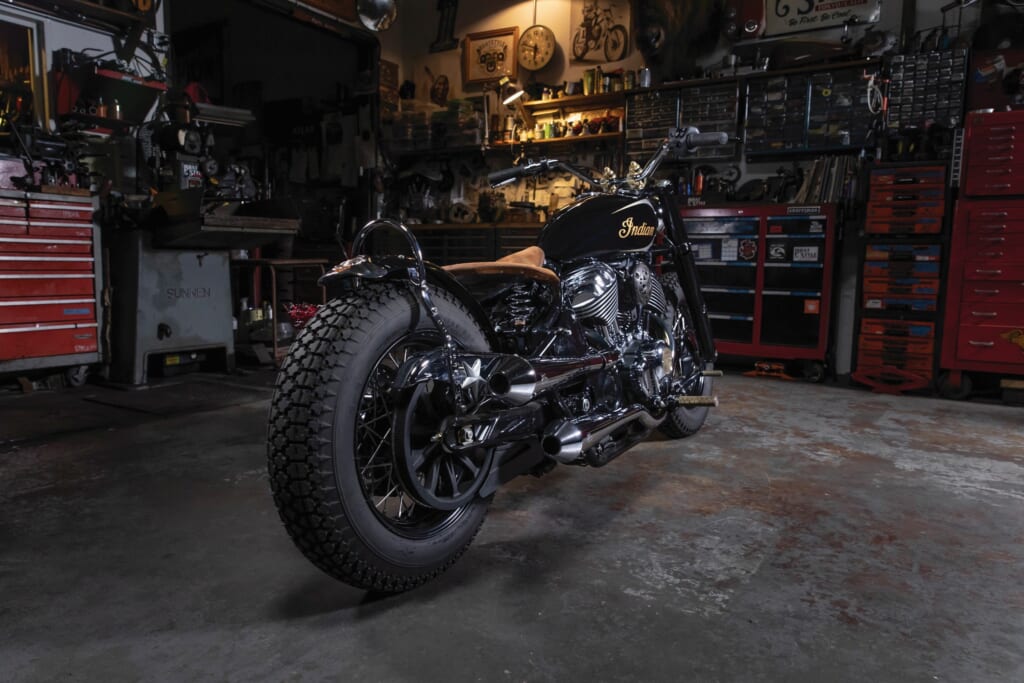
Lastly, Takamine painted his creation gloss black, with silver scallops on the tank and a gold Indian script logo. In all, the bike is a gorgeous and modern interpretation of Takamine’s legendary “Brat Style.” After the stirring handover, Nick sat down with us to discuss riding, acting and his new toy.
What got you into motorcycles in the first place?
I got into motorbikes because we were prepping on Mad Max and this other film I did, called Young Ones, and I had to be able to ride. And the style in those is very eclectic and old—like on Mad Max they’d have old fire extinguishers that were turned into gas tanks and things like that. And similarly on Young Ones I was riding this old Honda that had been chopped about and rebuilt.
So it was kind of that aesthetic, which is very much Go’s style, that “Brat” style of all the things that he’s reappropriated on this bike: the old Ford fender on the back, and coins that he finds at swap meets and blending those with this modern bike. I was like, “Oh, that’s completely the aesthetic I love with motorcycles.”
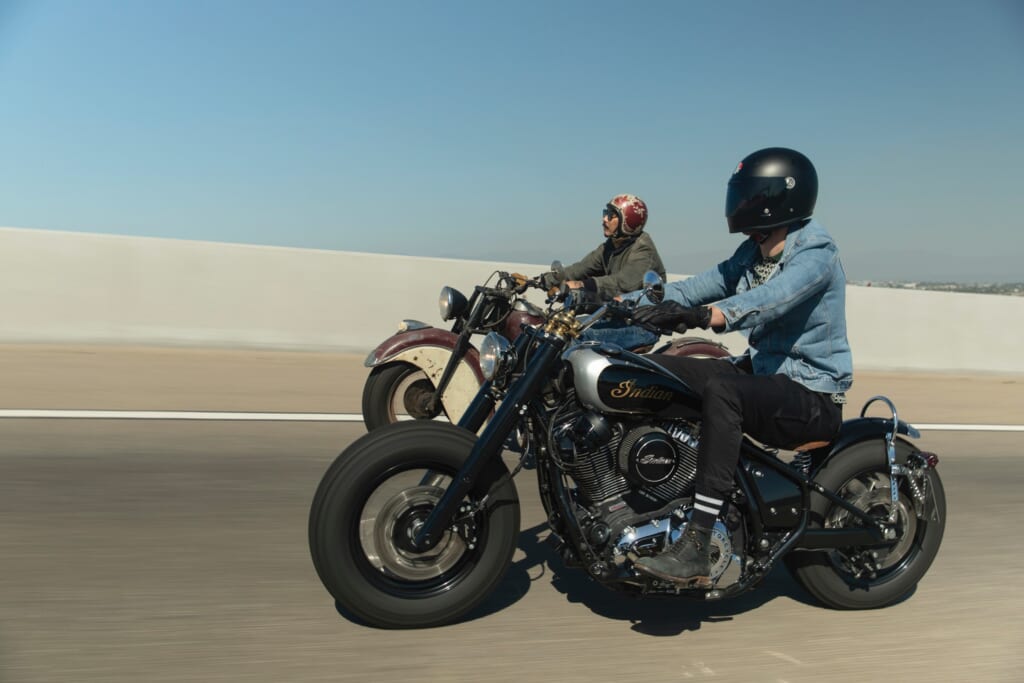
Old bikes can be tricky to ride, so it’s ideal to get a modern bike that has usability, but still oozes vintage style. As the oldest American bike brand, Indian’s vintage aesthetic is authentic.
Yeah, it’s what’s beautiful. And that’s what I think Indian Motorcycle is balancing really nicely at the moment with their bikes is you can make them pretty individual straight off the website, but they’re kind of classic in terms of their silhouette and everything…. They’re also moving with the times, and updating it and making the bikes modern, but still sticking true to that aesthetic.
They’re just so synonymous with America and motorbikes. I remember coming over here for the first few times growing up and seeing Indian motorbikes on the road and being like, this is what you see in movies, you know? So to see that in real life—it’s just very exciting to be here in this garage as well and see all the classics.
Watching your joy at seeing the bike unveiled was a very intimate moment in a way, it’s quite impactful.
It’s shocking. And it’s a piece of art, Go is an artist. So to see what he’s created and his vision…. But then it feels like a huge responsibility, in a way, for me to care for it and take care of it. Growing up, seeing a lot of those shows that are like home makeovers, and you see people’s reactions on that but you never know quite how you’d feel. And this is the closest thing for me ever to that. And it is, it’s shocking. It does give you a little bit of a gut punch where you’re like, “Oh yeah, I’m going to treasure and love this bike forever.” It’s amazing.
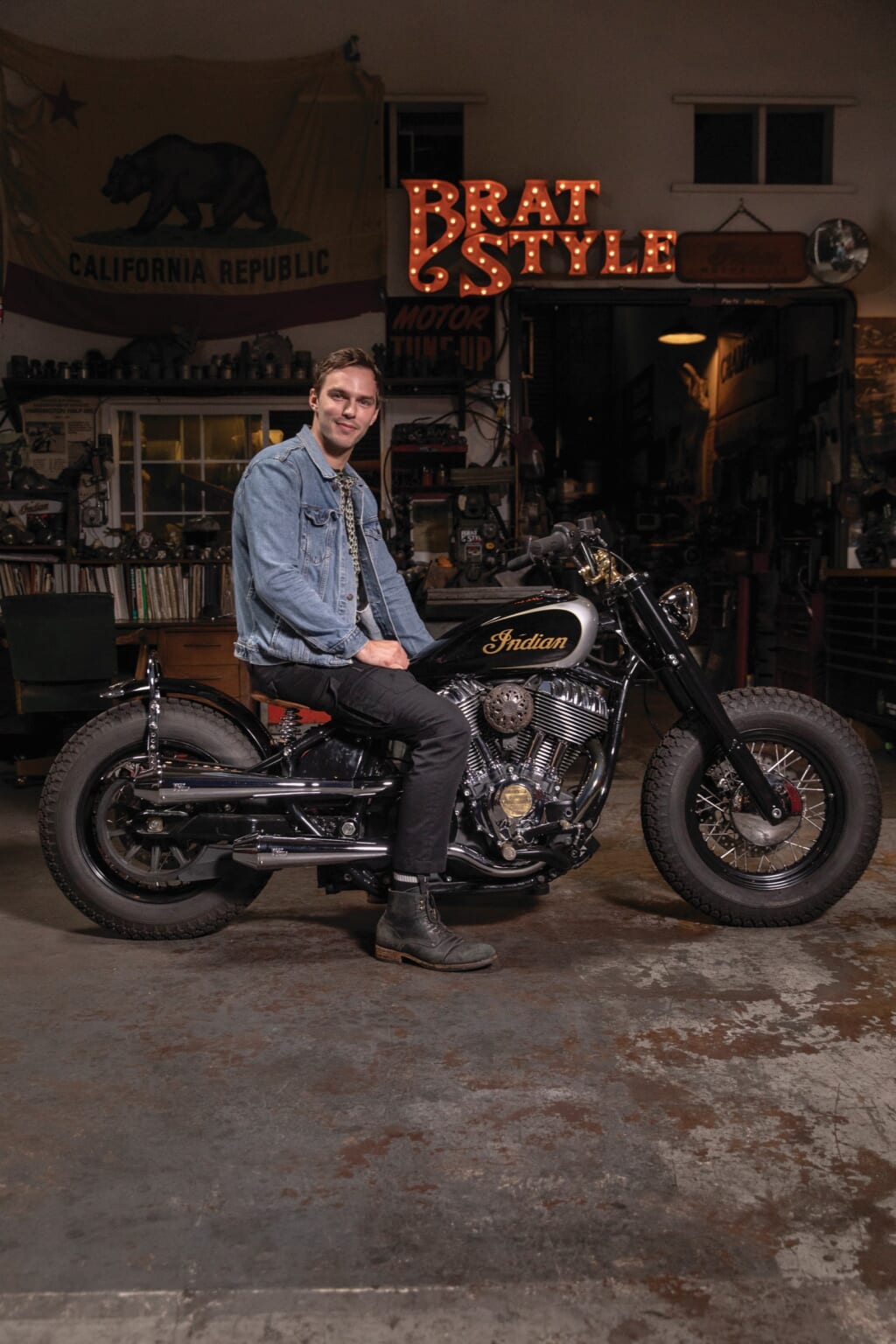
Being a gearhead I can’t imagine a better movie for you than Mad Max. The visceral elements, and the mechanics of the motorcycle parts are on steroids.
The stunt team that we had on that was wild. You’d be at base camp in the middle of the desert in Namibia, and you’d walk out of your trailer and they would set up motocross ramps and the guys were practicing their jumps right in front of your trailer. Just flying through the air, like 30, 40 feet in the air, which is absolutely mad. There’s a sequence through there where the guys are jumping on dirt bikes and throwing canisters into the truck and stuff… which is pretty wild to film with those sorts of stunts. And that was something that was a credit to [director] George [Miller], that he was like all this stuff is physically possible, so we don’t have to use digital special effects. We can do it for real.
George Miller is one of the greatest directors of all time. You’ve also worked with Bryan Singer, Yorgos Lanthimos, Tom Ford, all these guys that are so great at their craft. And you’re still really young. What have you gleaned from each director?
That’s the wonderful thing… It’s interesting, because when you work with directors they never work with each other most of the time, so they’re always intrigued by other people’s process. As an actor I don’t have a set way of working, so I get to learn from each experience how different directors work. How they hopefully get the best out of you, and next time you’re on set and you feel like something’s not working—or you’re not bringing what you need to a scene and understanding what the assignment is—you can go back in your toolbox of what this director did, or another, and you can kind of go, “Okay, that worked there, so maybe I can apply that here.”
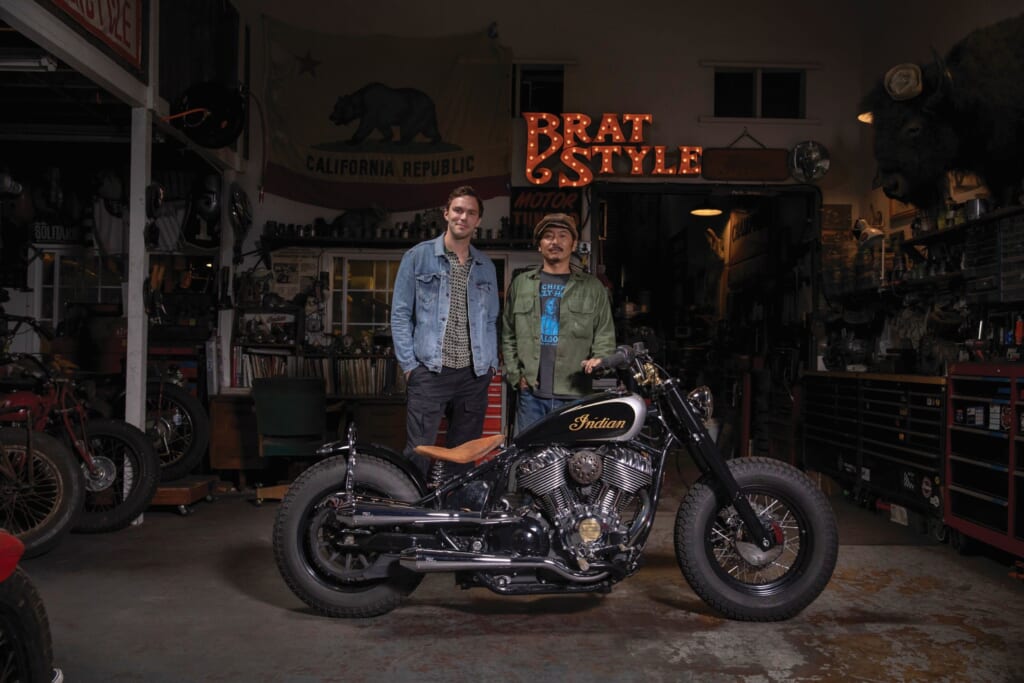
And it’s interesting because a lot of those directors, the thing they inspire in you is a real sense of trust in their ability. Which gives you the freedom to then push your limits and feel safe that you are never going to end up with egg on your face, or feel like you’ve made a fool of yourself or it’s not working. And I certainly felt that with most of these guys, they give you a great sense of confidence and freedom to just perform and have fun, and then they’ll find what they need within that to tell the story
